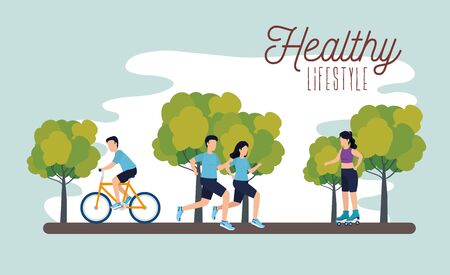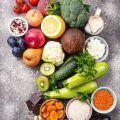Introduction to Plant-Based Nutrition in the UK
The United Kingdom has seen a significant rise in plant-based eating over the past decade, with more people choosing vegetarian, vegan, or flexitarian diets for health, ethical, and environmental reasons. According to recent surveys, around 7% of British adults now follow a plant-based diet, and supermarket shelves are increasingly stocked with meat-free alternatives. While adopting a plant-based lifestyle can offer numerous health benefits, such as reducing the risk of chronic diseases and lowering environmental impact, it also brings unique nutritional considerations. Specifically, nutrients like iron, vitamin B12, and omega-3 fatty acids are less abundant or found in less bioavailable forms in plant foods compared to animal sources. Focusing on these key nutrients is essential for anyone aiming to maintain optimal health while enjoying the benefits of a plant-based diet in the UK.
Iron: Plant Sources and Absorption Tips
Iron is an essential mineral for energy, immunity, and cognitive function, but getting enough on a plant-based diet in the UK can be challenging. Unlike animal-derived haem iron, plant foods provide non-haem iron, which is less efficiently absorbed by the body. Understanding local plant-based sources and applying practical absorption strategies is key for optimal iron status.
UK-Available Plant-Based Iron Sources
| Food | Average Iron Content (mg per 100g) | Availability in UK |
|---|---|---|
| Lentils (cooked) | 3.3 | Widely available in supermarkets and health shops |
| Chickpeas (cooked) | 2.9 | Canned or dried forms are common |
| Tofu | 5.4 | Found in major supermarkets and Asian grocers |
| Pumpkin seeds | 8.8 | Easily sourced from health food stores and supermarkets |
| Fortified breakfast cereals | Up to 12* | Varies by brand; check packaging for iron content |
| Spinach (raw) | 2.7 | A staple in most grocery stores across the UK |
| Quinoa (cooked) | 1.5 | Available in supermarkets and online retailers |
| Dried apricots | 2.7 | Common snack option nationwide |
*Content varies significantly between brands. Always check nutrition labels.
Common Challenges for Plant-Based Eaters in the UK
- Lower Absorption Rates: Non-haem iron from plants is absorbed less efficiently than haem iron from animal products.
- Tannins and Phytates: Tea, coffee, whole grains, and some legumes contain compounds that can inhibit iron absorption—a particular concern given the UKs tea-drinking culture.
- Lack of Fortification: Not all plant-based foods are fortified with iron, so label reading is essential.
Practical Strategies to Boost Iron Absorption
- Add Vitamin C: Pairing iron-rich foods with vitamin C sources (like bell peppers, citrus fruits, or strawberries) can increase absorption up to threefold.
- Avoid Tea and Coffee at Meals: Try to consume these beverages between rather than with meals to reduce their inhibitory effect on iron uptake.
- Soy Products: Fermented soy foods like tempeh may have higher bioavailable iron compared to non-fermented products.
- Soak, Sprout, or Ferment: Preparing grains and pulses this way helps reduce phytate content, enhancing mineral absorption.
The Bottom Line:
A well-planned plant-based diet in the UK can meet your daily iron requirements by focusing on diverse sources, combining them with vitamin C-rich foods, and being mindful of inhibitors present in certain drinks and wholefoods. Regular blood tests can help monitor your status and inform any need for further dietary adjustments or supplementation.

3. Vitamin B12: Meeting Needs Without Animal Products
Vitamin B12 is a critical nutrient that supports red blood cell formation, neurological function, and DNA synthesis. For those following a plant-based diet in the UK, understanding how to meet B12 requirements without animal products is essential for long-term health.
Why B12 Matters on a Plant-Based Diet
B12 is naturally found in animal-derived foods such as meat, fish, dairy, and eggs. Deficiency can lead to anaemia, fatigue, memory problems, and nerve damage. Since plant foods do not provide reliable sources of B12, those avoiding animal products must be proactive in their approach.
B12 Requirements for Adults in the UK
The NHS recommends that adults consume approximately 1.5 micrograms (mcg) of vitamin B12 per day. However, absorption rates vary and older adults or those with digestive issues may require higher intakes or more frequent supplementation.
Reliable Sources of B12 for Vegans
In the UK, fortified foods are a practical option. Commonly fortified products include breakfast cereals, plant milks (such as soya or oat milk), nutritional yeast, and some meat alternatives. Always check product labels to confirm fortification levels.
Supplementation: A Sensible Strategy
The Vegan Society and NHS both recommend regular supplementation as the most dependable way to ensure adequate B12 intake on a completely plant-based diet. Tablets containing cyanocobalamin (the most stable form) are widely available at supermarkets and pharmacies across the UK. Typical guidance suggests either taking a daily supplement providing at least 10mcg or a weekly supplement providing at least 2000mcg.
Monitoring Your Status
If you have concerns about your B12 status—especially if you experience symptoms like tiredness or pins and needles—it’s advisable to ask your GP for a blood test. Early detection and intervention can prevent serious health complications related to deficiency.
4. Omega-3 Fatty Acids: Plant-Based Alternatives
Omega-3 fatty acids are vital for brain, heart, and eye health, but traditional sources like oily fish are off the menu for those on a plant-based diet. In the UK, where fish such as mackerel and salmon are dietary staples for many, vegans and vegetarians must look elsewhere to meet their omega-3 needs. The primary plant-derived omega-3 is alpha-linolenic acid (ALA), which the body can convert in small amounts to EPA and DHA—the forms found in marine sources. However, this conversion rate is notoriously low, making it important to focus on both ALA-rich foods and direct vegan sources of EPA/DHA.
Highlighting ALA-Rich Foods
Several readily available foods in British supermarkets provide a good dose of ALA. Incorporating these into daily meals can help support overall omega-3 intake:
| Food Source | Typical Serving Size | ALA Content (per serving) |
|---|---|---|
| Chia seeds | 1 tbsp (15g) | ~2,400 mg |
| Flaxseeds (ground) | 1 tbsp (15g) | ~2,350 mg |
| Walnuts | 30g (a handful) | ~1,900 mg |
| Rapeseed oil (canola) | 1 tbsp (15ml) | ~900 mg |
| Soybeans/Tofu | 100g | ~600 mg |
The Role of Algae-Based Supplements
The main challenge with relying solely on ALA is the limited conversion to the longer-chain omega-3s—EPA and DHA—that offer direct protective benefits for cardiovascular and cognitive health. For UK residents following a vegan or vegetarian diet, algae-based supplements present an effective solution. These supplements deliver EPA and DHA directly, bypassing the inefficient conversion process. Algae oil capsules are widely available in health food shops and online retailers across the UK, providing a convenient way to ensure adequate intake without compromising ethical or dietary choices.
Recommended Approach for UK Vegans & Vegetarians
- Include a variety of ALA-rich foods daily: chia seeds in porridge, flaxseed sprinkled over cereals or salads, walnuts as snacks, and rapeseed oil in dressings.
- Consider an algae-based EPA/DHA supplement; most adults benefit from 250mg–500mg combined EPA/DHA per day.
- If using fortified foods (such as some plant milks), check labels for added omega-3 content.
Summary Tip:
A balanced approach—combining regular consumption of ALA-rich foods with an algae-based supplement—is the most evidence-supported strategy for meeting omega-3 requirements on a plant-based diet in the UK.
5. Smart Shopping and Meal Planning in the UK
Adopting a plant-based diet in the UK comes with its own set of opportunities and challenges, especially when it comes to ensuring you get enough iron, vitamin B12, and omega-3 fatty acids. Making informed choices at the supermarket and planning your meals thoughtfully can make a significant difference.
Tips for Identifying Fortified Foods
Many staple foods in UK supermarkets are now fortified to support plant-based diets. Look out for plant milks (such as soya, oat, or almond) and breakfast cereals that have added vitamin B12 and sometimes iron. Some brands of yeast extract spreads and meat alternatives also contain these key nutrients. Check the packaging for statements like “fortified with B12” or “source of iron.” This simple step can help bridge common nutritional gaps.
Reading UK Food Labels Effectively
Understanding how to read food labels is crucial. In the UK, nutrients are often listed per 100g and per serving on the back of packaging. When comparing products, check the nutrition panel for iron (mg), vitamin B12 (µg), and omega-3 (often listed as ALA or DHA/EPA in mg). Ingredients lists will also specify if vitamins or minerals have been added—these typically appear towards the end of the list. Opt for products with clear fortification information and minimal additives.
Planning Balanced Plant-Based Meals
A balanced plant-based meal should include a variety of whole grains, pulses, nuts, seeds, vegetables, and fruits. For iron, prioritise foods like lentils, chickpeas, tofu, quinoa, and pumpkin seeds. Pairing these with vitamin C-rich foods (such as peppers or strawberries) at mealtimes enhances absorption. For B12, incorporate fortified products daily; supplements are recommended by the NHS for those following vegan diets. Omega-3 can be sourced from flaxseeds, chia seeds, walnuts, and certain algal oil supplements.
Practical Shopping Tips for UK Shoppers
- Shop at major supermarkets such as Tesco, Sainsbury’s, Asda, or Waitrose for a wide range of fortified options.
- Visit health food stores like Holland & Barrett for specialist plant-based supplements and fortified products.
- Use apps or online guides from organisations like The Vegan Society to identify reliable brands and products available locally.
Summary
By focusing on label literacy, seeking out fortified foods commonly found in UK shops, and planning meals with nutrient diversity in mind, it’s entirely possible to maintain a balanced plant-based diet rich in iron, B12, and omega-3s—even within the unique context of British food culture.
6. Seeking Professional Guidance
For those following a plant-based diet in the UK, ensuring optimal intake of key nutrients such as iron, vitamin B12, and omega-3s is crucial for long-term health. However, individual needs can vary significantly due to factors like age, gender, lifestyle, and existing health conditions.
When to Consult a UK-Registered Dietitian
If you are new to plant-based eating or have specific concerns about nutrient deficiencies, it is advisable to seek guidance from a UK-registered dietitian. Professional support is particularly valuable if you experience symptoms such as fatigue, unexplained weakness, cognitive changes, or digestive issues—these may indicate underlying nutritional shortfalls. NHS-registered dietitians are equipped with evidence-based knowledge tailored to UK dietary patterns and food fortification standards.
The Importance of Regular Nutrient Status Checks
Routine blood tests can help monitor your levels of iron (including ferritin), vitamin B12, and essential fatty acids. In the UK, GPs can arrange these tests if clinically indicated, especially if you report symptoms or belong to higher-risk groups such as menstruating women, pregnant individuals, older adults, or those with restricted diets. Early detection of deficiencies allows for timely intervention and prevents long-term complications.
Maximising Your Plant-Based Health Journey
Partnering with a qualified professional not only helps personalise your nutrition plan but also ensures that any supplementation—such as B12 sprays or algae-derived omega-3s—is both safe and effective. Regular check-ins with a dietitian provide ongoing support as your dietary habits evolve, helping you stay on track with UK-recommended nutrient intakes. Ultimately, proactive monitoring and expert advice are integral to thriving on a plant-based diet while minimising health risks.

